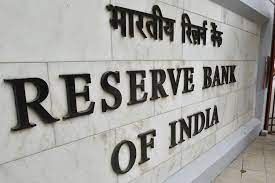The Reserve Bank of India (RBI) has taken decisive action in response to the severe financial crisis plaguing The National Cooperative Bank (NCB), a prominent financial institution in Bengaluru. In an effort to safeguard the interests of depositors and restore stability within the bank, the RBI has imposed stringent restrictions on NCB’s operations, causing anxiety and concern among customers and stakeholders alike.
The regulatory measures come on the back of an extensive assessment of NCB’s financial health, which raised alarming red flags concerning the bank’s solvency and risk management practices. The RBI has ordered NCB to cease granting or renewing any loans and advances without obtaining prior approval from the central bank. This move is aimed at curbing any further deterioration in the bank’s already precarious financial position.
The restrictions also extend to the withdrawal limits imposed on NCB’s account holders. Customers will now be constrained to withdraw only a limited amount from their accounts, adding to the uncertainty surrounding the bank’s ability to meet its financial obligations.
NCB has been grappling with a surge in non-performing assets (NPAs), indicating a sharp increase in loan defaults, which has been a primary cause for concern for the RBI. The central bank’s intervention seeks to prevent further escalation of these NPAs and ensure that the bank complies with prudent banking norms and practices.
The cooperative banking sector in India serves as a critical lifeline for local communities and small businesses, and any disruptions within this sector can have far-reaching consequences. While the RBI’s move aims to safeguard the financial system’s stability, it has understandably left NCB’s customers apprehensive about the safety of their hard-earned savings and investments.
NBC’s statement after RBI restrictions
In response to the RBI’s stringent measures, NCB’s management has issued a statement acknowledging the grave financial challenges confronting the bank. They have pledged full cooperation with the RBI and have assured customers and stakeholders of their commitment to implement corrective actions to restore the bank’s financial health.
The RBI, in a bid to quell concerns among depositors, has emphasized that their savings remain safe and secured under the ambit of the Deposit Insurance and Credit Guarantee Corporation (DICGC). The DICGC provides insurance coverage for bank deposits up to a specified limit, offering depositors some relief in the event of any unfortunate circumstances.
The central bank has stressed that the restrictions are not intended to be permanent; rather, they are intended to act as a corrective measure to set NCB back on a path to stability. The RBI will closely monitor NCB’s progress in meeting the prescribed conditions and may reconsider the restrictions based on the bank’s compliance and financial recovery.
As the RBI keeps a close watch on NCB’s financial rehabilitation, the situation serves as a stark reminder of the importance of robust regulatory oversight to safeguard the integrity of India’s banking sector. Stakeholders and the public eagerly await updates on the bank’s progress in overcoming this crisis and restoring confidence among its customers and the larger cooperative banking community.













